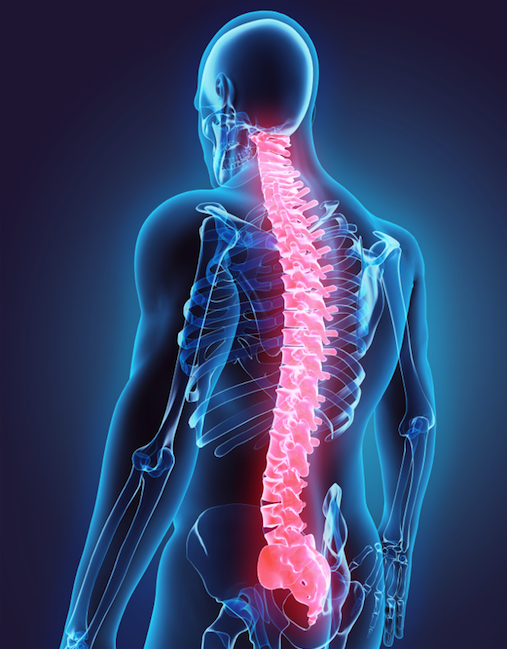Orthopedic
CONDITIONS for SPINE
SPECIALISTS

It is estimated that up to 80% of the population will experience back pain at some time in their lives. (Rubin Dl. Epidemiology and Risk Factors for Spine Pain. Neurol Clin. 2007; May;25(2):353-71) The best strategy for avoiding back issues is to have a healthy back. Here are some tips for a healthy back.
Fortunately, many conditions can be treated non- surgically by a orthopedic spine specialist. Spine surgeons work with international pain management specialized anesthesiologists as well as Physiatrists, the practitioners of physical medicine and rehabilitation, to reduce the expression of symptoms with oral medications, injectable medications, and lifestyle modifications. Many spine issues can be resolved with these conservative measures so the majority of spine issues start with these treatments as well as x-rays, EMG, and MRI if warranted; some symptoms are more serious than others and may advance a patient beyond conservative treatment without trying them first. If symptoms specifically indicate a need for surgical intervention, or conservative treatments fail to provide enough relief than surgery may then be considered and will be discussed.
PROCEDURES OF THE SPINE
Cervical Epidural Steroid Injection
ACCF (Anterior Cervical Corpectomy/Fusion)
ACDF (Anterior Cervical Discectomy/Fusion)
Cervical Laminectomy and Fusion
Cervical Laminoplasty
Interbody Fusion (TLIF/XLIF/ALIF)

Contact One of our Orthopedic SPECIALISTS
If you are in need of spinal care in Dallas / Fort Worth email or contact us today. Our orthopedics in Dallas / Fort Worth service all of DFW including: Dallas, Arlington, Irving, Midlothian, Waxahachie, and Mansfield. Our experienced spinal care orthopedics will ensure that your time with us is stress free.
F.A.Q.
How common are spine and back pain?
What type of specialist should I contact if I have a spinal injury or chronic back pain?
Chiropractors can assist with acute back pain by performing manual adjustments to alleviate pain, providing advice on lifestyle changes to enhance mobility and reduce pain, and suggesting other holistic interventions such as orthotics. However, for complex injuries or chronic back pain, it may be advisable to seek guidance from a medically trained professional such as a spine surgeon. Spine surgeons work with anesthesiologists, physiatrists, and physical therapists to reduce symptoms with oral medications, administer injectable medications, and recommend lifestyle modifications. Check the menu on this page for a complete list of spine treatment options that the AOA Orthopedic Specialists have available.
Must I have surgery for chronic back pain or spinal injuries?
What are red flag symptoms?
There are certain worrisome symptoms, often referred to as ‘red flags,’ that may suggest a potential disruption in the communication between your nerves and brain, indicating neuropathic compromise. These symptoms encompass a notable shift in balance, substantial alterations in bowel or bladder function (such as loss of awareness regarding soiling), diminished sensation in the saddle area (referred to as saddle anesthesia), profound weakness in the legs, and rapid sensory changes in all four limbs. If you encounter any of these signs, it is crucial to seek immediate medical attention at the emergency room. Subsequently, we advise you to schedule an evaluation with a spine surgeon.
Are there different categories of back pain?
Back pain can be categorized into three primary groups depending on the duration of pain experienced. Acute pain is defined as pain endured for less than three months and is frequently linked to a particular incident or injury responsible for the discomfort. Subacute pain refers to pain experienced for a duration of three to six months, and its origin can often be traced back to a specific event but may also involve several contributing factors. Chronic pain encompasses pain experienced for over six months, or even persisting for several years, and can be attributed to multiple contributing factors.

